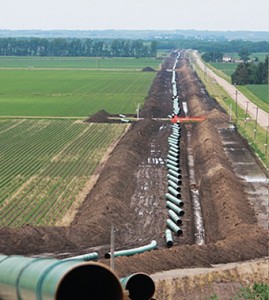Very blue planet today.
Trivialized media
 Iranian blogger Hossein Derakhshan was sent to prison in 2008 for what he had written and advocated for online. When he was released in 2014, the internet had greatly changed:
Iranian blogger Hossein Derakhshan was sent to prison in 2008 for what he had written and advocated for online. When he was released in 2014, the internet had greatly changed:
There’s a story in the Qur’an that I thought about a lot during my first eight months in solitary confinement. In it, a group of persecuted Christians find refuge in a cave. They, and a dog they have with them, fall into a deep sleep and wake up under the impression that they have taken a nap: in fact, it’s 300 years later. One version of the story tells of how one of them goes out to buy food – and I can only imagine how hungry they must have been after 300 years – and discovers that his money is obsolete now, a museum item. That’s when he realises how long they have been absent.
The hyperlink was my currency six years ago. It represented the open, interconnected spirit of the world wide web – a vision that started with its inventor, Tim Berners-Lee. The hyperlink was a way to abandon centralisation – all the links, lines and hierarchies – and replace them with something more distributed, a system of nodes and networks. Since I got out of jail, though, I’ve realised how much the hyperlink has been devalued, almost made obsolete.
The piece is full of pull quotes, so read the whole thing. How little we notice just how much social media sites and our use of them has changed is a tribute to the ingenuity of engineers in Silicon Valley. They think about this stuff all the time, so we don’t have to! But the punchline is… we do have to. Derakshan’s perspective is a stark reminder of just how limited the use of social media has made our world – all beneath the aegis of connecting, sharing and informing. Frogs eventually do notice the water boiling. It’s crucial to set the irony aside, and reset the way online convenience has conditioned us already.
There’s a resolution. Happy 2016.
Image: Count on your hands in Chinese
Grey Lady Blushes, Again
 This will not get enough attention, but the source pollution problem at the New York Times, as Cholly Pierce so precisely put it, is a devious issue of national proportions:
This will not get enough attention, but the source pollution problem at the New York Times, as Cholly Pierce so precisely put it, is a devious issue of national proportions:
As is now obvious, somebody fed the paper bad information on San Bernardino murderess Tashfeen Malik’s social media habits. It was said that she was posting jihadist screeds on Facebook. The Times hyped the scoop by stating pretty clearly that the government—and the administration running it—slipped up. It was the inspiration for endless bloviating about how “political correctness is killing people” at Tuesday night’s Republican debate. Then comes FBI director James Comey to say that, no, there were no public Facebook posts that the government missed because there weren’t any at all.
More than a few people have noted that two of the three reporters who were fed this story also had their bylines on the notorious (and thoroughly debunked) piece about how the FBI had launched a “criminal inquiry” into Hillary Rodham Clinton’s alleged mishandling of classified materials in her e-mails.
Of the Clinton emails non-story, she wasn’t a target, it wasn’t a criminal referral and the emails weren’t classified. Other than that, great story! And the thing is, even pointing out this makes one sound like an HRC apologist, but nevermind.
The broader issue is, this is the problem if we’re only going to allow ourselves one national paper. The purchase of the major Las Vegas daily by its hometown casino magnate-cum-Republican kingmaker is further symptomatic of this self-replicating double-bind. The news as business, scandal as profit generator, reporters trained in the finer arts of the same and quaint rules of journalism secure under glass at the few J-schools left all equal an untenable republic. Remember: No Checks = No Balances.
What Does GreenLand Mean?
 Rapid ice melts and calving glaciers are resulting in a dark snow phenomenon in Greenland. Look at these images in the Guardian and tell yourself over and over again that nothing is happening:
Rapid ice melts and calving glaciers are resulting in a dark snow phenomenon in Greenland. Look at these images in the Guardian and tell yourself over and over again that nothing is happening:
For most of us, science is an abstract subject but aerial photography is a powerful tool to translate what environmental science is telling us. It brings a different perspective to environmental problems. You can be very clear or very abstract to make images that are inspiring and beautiful, images don’t have to be read straight ahead. It’s sort of like teasing the viewer … to find clues in the image,’ say [photographer Daniel]Beltrá
In another coincidence I just noticed, this is the 1,001st post on the site.
The Frenetic End of Oil
 Paris talks but clean energy patents fly, it seems. This Bloomberg feature on the boom and bust of the Bakken oil fields of North Dakota has the look of a high speed news reel that is, maybe, not quite how we imagined it. But once the process shows itself from beginning to end so quickly in this way, you can imagine happening over and over again. The pollution, the waste, the overbuilding, the exodus:
Paris talks but clean energy patents fly, it seems. This Bloomberg feature on the boom and bust of the Bakken oil fields of North Dakota has the look of a high speed news reel that is, maybe, not quite how we imagined it. But once the process shows itself from beginning to end so quickly in this way, you can imagine happening over and over again. The pollution, the waste, the overbuilding, the exodus:
The discovery last decade that fossil fuels could be tapped from deep beneath the windswept prairies of North Dakota acted like a magnet on American working people. By the thousands they came, from as far as Texas and California, fortune-seekers in a modern-day Gold Rush. Together with visionary companies like Continental Resources and industry behemoths ExxonMobil and Norway’s Statoil, they exploited a new technology called fracking — blasting the underground Bakken rock formation with sand and water and slurping up the crude that was hiding there for millennia — to increase oil output in the region 12-fold from 2006 to 2014. The bonanza helped drive the U.S. closer to energy self-sufficiency than it’s been since the 1980s.
The frenzied production exacted a price — oversupply was one reason the U.S. crude price took a nosedive, losing more than half its value from a June 2014 peak. The number of rigs pumping crude from the Bakken plummeted to about 70 from a high of 200, and the tide of workers began to ebb.
Meanwhile, clean energy patents are at their all time high, which may also be a frenzied if inelegant prologue to the next age that is also not as previously imagined. In what remains of the capitalist economy, money still rushes in first, not pretty, sometimes not even choosy. But at least we can be a little more sanguine about what’s left to choose from, that the new ideas are exploding with quiet steam instead of smokey emissions, that maybe growth now will be slow and visible like the gentle oscillation of giant windmills. I know, poetry is sometimes like the explicit sunset in the image: not sure whether it’s rising or setting unless we understand the direction we’re facing.
Image: David Acker/Bloomberg, fishing in the frozen Missouri River.
Since 2001, the US has admitted roughly 750,000 refugees
 and none have been accused of involvement in domestic terrorism aimed at the US homeland, as pointed out by The Economist and included in Juan Cole’s excellent list of why we shouldn’t be so cowardly about accepting refugees:
and none have been accused of involvement in domestic terrorism aimed at the US homeland, as pointed out by The Economist and included in Juan Cole’s excellent list of why we shouldn’t be so cowardly about accepting refugees:
8. The US owes these refugees. Without the US invasion of Iraq in 2003, there would have been no al-Qaeda in that part of the world, and no al-Qaeda offshoots like Daesh/ ISIL. Why do the governors (most of whom supported the invasion of Iraq) think the US can go around the world sowing instability and being responsible for creating the conditions that lead to millions of refugees but then can avoid the responsibility of ameliorating those broken lives?
Number 8 is important but the whole list is good. As Pierce pointed out, when the president of France confirmed yesterday that they would accept 30,000 Syrian refugees, the argument is effectively over. Sorry, this pandering foolishness must end. Yes, people can be and are scared. But the ones we should be focused on are those forced to leave their homes with young children.
Image via Reuters.
Misleading Investors
 I guess if that’s how we’re going to see things. But it would be better to state at the outset that every instance of disbelieving, climate change skepticism rises from the deliberate misinformation campaign devised by fossil fuel extraction companies when their own research began to tell them that the delicious smell from the kitchen was their own bacon frying:
I guess if that’s how we’re going to see things. But it would be better to state at the outset that every instance of disbelieving, climate change skepticism rises from the deliberate misinformation campaign devised by fossil fuel extraction companies when their own research began to tell them that the delicious smell from the kitchen was their own bacon frying:
New York State Attorney General Eric Schneiderman released the results of an investigation that found one of the world’s largest coal companies had misled the public and its shareholders about the risks climate change could pose to its bottom line.
After several years of investigations, Schneiderman reached an agreement with Peabody Energy that won’t require the company to admit it broke the law and does not entail a fine or other penalty. Instead, Peabody must file revised shareholder disclosures to the Securities and Exchange Commission with new language acknowledging that “concerns about the environmental impacts of coal combustion…could significantly affect demand for our products or our securities.”
…
The agreement comes just days after Schneiderman issued a subpoena to ExxonMobil, kicking off an investigation into whether the oil giant has misled investors and the public about the basic science of climate change for decades. Exxon has denied any wrongdoing. While the two investigations have some similarities, Exxon could face tougher penalties than Peabody, said Andrew Logan, director of oil and gas programs at Ceres, an investor advocacy group. The allegations against Exxon stretch back much further in time and could potentially be more serious, so the attorney general could pursue more aggressive action against the company, Logan said.
The Exxon practice is the actual real story here, one that goes back to the late seventies. The companies were no fools; they invested their own money in real research because they wanted to know the truth. They just decided that it was more important that you didn’t know. And that you questioned any attempts by the government to reign in your freedom. They even gave you a few things you could say.
Framing the practice of climate deception as ‘no duty’ to be truthful with investors may make it seem like a victimless crime, we’re all adults here and all’s fair in love n’ bidness, but c’mon.
Green Opposition
 It is enough to say that economics and environmental opposition have made building the Keystone XL Pipeline impractical. What this outcome may portend for the fates of other fossil fuels as the economics change may bare a little more fleshing out:
It is enough to say that economics and environmental opposition have made building the Keystone XL Pipeline impractical. What this outcome may portend for the fates of other fossil fuels as the economics change may bare a little more fleshing out:
The company behind the Keystone XL pipeline has asked the US government to put its review of the controversial project on hold.
TransCanada says the pause is necessary while it negotiates with Nebraska over the pipeline’s route through the state.
The move came as a surprise as TransCanada executives have pushed hard to get approval.
Environmental groups oppose the 1,179-mile (1,897km) pipeline, saying it will increase greenhouse gas emissions.
Maybe they’re pulling it until President Carson can approve the travesty project. But perhaps the reckoning is that neither version of green opposition is sufficient to turn the tide against an legacy energy source – that the power of both and maybe every meaning of green is necessary to make the difference
RankBrain
File this under “cabbage truck,” “born” and “yesterday:”
Artificial intelligence sits at the extreme end of machine learning, which sees people create software that can learn about the world. Google has been one of the biggest corporate sponsors of AI, and has invested heavily in it for videos, speech, translation and, recently, search.
For the past few months, a “very large fraction” of the millions of queries a second that people type into the company’s search engine have been interpreted by an artificial intelligence system, nicknamed RankBrain, said Greg Corrado, a senior research scientist with the company, outlining for the first time the emerging role of AI in search.
RankBrain uses artificial intelligence to embed vast amounts of written language into mathematical entities — called vectors — that the computer can understand. If RankBrain sees a word or phrase it isn’t familiar with, the machine can make a guess as to what words or phrases might have a similar meaning and filter the result accordingly, making it more effective at handling never-before-seen search queries.
Key quotes from the Bloomberg article:
“Machine learning is a core transformative way by which we are rethinking everything we are doing,” said Google’s Chief Executive Officer Sundar Pichai on the company’s earnings call last week.
Unironically, we’ll assume. And
“It’s very carefully monitored,” Corrado said, nothing that Google periodically updates the system by feeding it a load of new data to help it better reason with new concepts.
Here’s a guess: A new, highly valued skill set becomes communicating with language and word combinations that the computer cannot understand. Weird, constantly changing pigeon combinations develop that mimic and often include the use of dying and/or dead languages. But this development coincides with the mass extinction of any ability to communicate, “search,” think or anything else with any language other than what the computer can understand. The race is on to talk and write beyond the reach of the learning machines. Think of it as sort of a dystopian, 1984-esque, Escape from Jeopardy-Humanities-Terminator cauchemar (see what we did there?), that I am not going to write but on the film about which I would like to have points.
Alice
 The great American novelist and poet Alice Walker was in town the last two days, and I was fortunate enough to be in attendance at her public event last night at the Morton Theatre. It was a conversation with a great and generous soul, who reminded us to be kind, generous, curious and grateful to the wonder of which we are all a part, and to which we are ever-present witnesses. She instructed us to read, read, read, and to be aware of all that we allow into our consciousness via the invasive nature of electronic and broadcast media. We should be mindful of our ancestors and their suffering, because of which we should work to alleviate all suffering that we are aware of and encounter. Truly amazing and inspiring. She even read a couple of pages of dialogue between Shug and Celie talking about God from The Color Purple. I hope your Thursday night was good, too.
The great American novelist and poet Alice Walker was in town the last two days, and I was fortunate enough to be in attendance at her public event last night at the Morton Theatre. It was a conversation with a great and generous soul, who reminded us to be kind, generous, curious and grateful to the wonder of which we are all a part, and to which we are ever-present witnesses. She instructed us to read, read, read, and to be aware of all that we allow into our consciousness via the invasive nature of electronic and broadcast media. We should be mindful of our ancestors and their suffering, because of which we should work to alleviate all suffering that we are aware of and encounter. Truly amazing and inspiring. She even read a couple of pages of dialogue between Shug and Celie talking about God from The Color Purple. I hope your Thursday night was good, too.
But here, I’ll share a poem from her website [yes, she blogs]. This is The Future Captured in A Heartless Fist by Alice Walker:
Somehow it is left to us
This most hopeful of generations
To bear
The unbearable.
We do not need to have given birth
To the children
Who are being destroyed
To know they are our children
Not only in the present and the past
But certainly in the future.
All children are connected at birth
To all the others ever to arrive.
Their faces turned upward
Toward the parents all grown-ups were meant to be.
How can you separate your child
From mine?
Little one, they have captured you
And placed you in a cage.
What are we to make of this?
Are we supposed to see you
As an animal?
Though animals also do not deserve
This fate.
Are we supposed to think
That you are, at five years old,
Already a “terrorist”?
Are we to believe you deserve
To stand alone in this tiny jail
Obviously constructed with you in mind
While grownups stand around
And frighten you?
Who paid for this cage
Anyway?
Whose taxes?
Whose labor?
Whose sweat?
Little One,
You are Palestinian
You are also Earthling,
You are Every Child.
By most humans of this planet
You are beloved.
But in this moment,
So hard to own
As what any parent or grownup
Anywhere
Could desire or wish
You are The Future
Captured in a heartless
Fist.
Image from last night, stolen without permission from fB.
